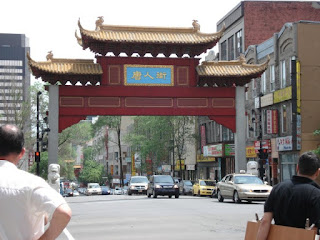A personal non-fiction piece I wrote for the University of Venus blog (for the guest blog post, click this link)...
I would like to dedicate this piece to Max Haiven and Alyson McCready.
Surrounded by friends, friends and family of friends, I attended my
first Passover this spring. On that first night of Passover, we sat in a
circle and took turns reading sections of the Haggadah, the guide to
the Seder ceremony that one of our hosts had rewritten years ago for a
graduate course on diaspora. At any point during the ceremony, we were
encouraged to interrupt the service with any questions, comments,
debates, and especially jokes. We were also invited beforehand to share
our own creative work or works of inspiration that related thematically
to any of the sections of this unconventional Haggadah, unconventional
for its radically politicized, anti-racist, anti-Zionist, and
anti-every-other-oppression-ist bent.
For the section on remembering our losses, called the Zecher, I
welled up with tears when I shared this poem that I had written last
year about my late stepfather who had died in 1998:
Enlightenment
Everything I know
about Buddhism
I know
because of you.
I was only a child
then–I believed in you
I believed, I believed
in every word
you said.
One night I sat, cross-legged
and prayed, in front of
the altar because
you
told me to.
That night
instead of going to bed
that night because
you
told me to
I chanted
I chanted
a thousand
and one prayers:
Quan The Am Bo Tat…
Quan The Am Bo Tat…
Quan The Am Bo Tat…
I was too young
to understand
the journey.
I have lost my way since
the night you left me
the night
Quan Am passed me by.
What struck me about everything leading up to that moment was the
generosity and creative impulse of my hosts to recreate and re-envision
this Passover for themselves and their friends, most of whom were
politicized non-Jewish folks affiliated with the English and Cultural
Studies department, most of whom, like my hosts, had moved far away from
home to go to grad school. Being around these folks on that first night
of Passover and hearing about the pains and losses associated with
migration and historical oppressions triggered an acute awareness of my
own diasporic losses. In that one moment as I welled up with tears, I
realized that I had been mourning.
For the longest time, I had been mourning the loss of my stepfather
and all the good and bad memories of him. I realized in that melancholic
moment that his death had closed a definite part of my life: a life of
speaking primarily in Vietnamese, a life of daily prayers and the
burning smell of joss sticks, a life of family meals and reliable
intimacies, a life of ritual and satisfied bellies.
As a child, my stepfather had always spoken to me as though I were an
adult. We would stay up late and talk for hours about things I could
vaguely understand. In an ironic turn of events, I find myself today—as a
Gen Y Chinese Canadian female literary scholar approaching thirty—only
capable of speaking to my family with a child’s vocabulary. This
language barrier entails more than just late-onset assimilation. It
entails a loss of family connections and intimacies. It leaves me
feeling lonely and isolated.
Overfilling with melancholic grief, I still managed to leave the
Passover with an incredible feeling of hope. I left amazed at how my
hosts have made this hybrid Jewish ceremony so meaningful for themselves
and their friends for the past five years, and that it evolves and
changes every spring. But after completing their dissertations this
year, they will be moving back home to Halifax. Another hybrid ceremony
will have to be created to help fill the palpable absence they will
leave behind.




